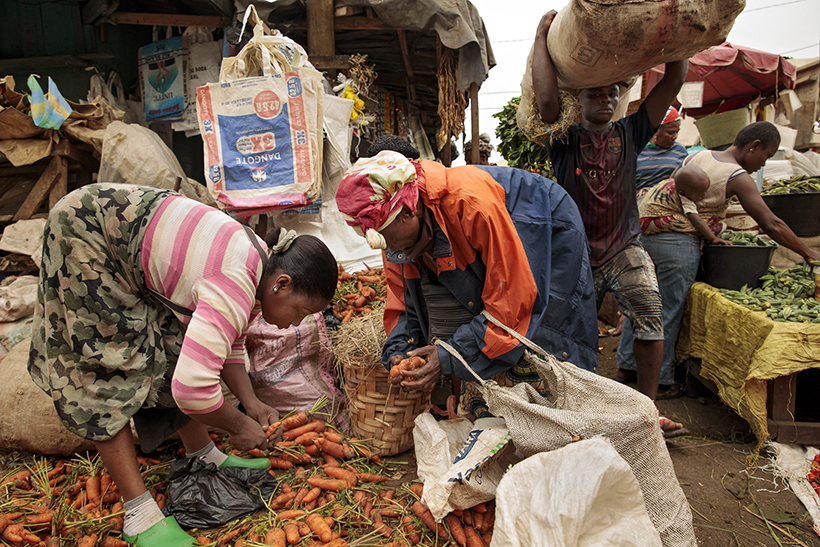Some topics require time for reflection in order to absorb the information received, to understand it and to put it in dialogue with our knowledge. This was the case for this panel composed of six speakers from different countries (Guatemala, El Salvador, Mexico, Honduras, Euskeria [Basque Country, Spain] and Tunisia). This diversity of contexts gave a very interesting international profile to the exchanges between the panelists and the participants. Although each of the panellists only had ten minutes to present the harmful effects of informal employment in their respective countries, the presentations were very enriching.
By Amina Mezdour, member of the International Collective of Young Francophones at the WSF 2022
There are many similarities in the experience of informal work around the world. This type of informal and informal economy constitutes an important part of the national economic sector in several countries. For example, the informal sector accounts for 70% of economic activity in El Salvador and 60% in Honduras. The informal economy is present in a wide range of sectors such as agriculture, industry, commerce and mining.
The informal economy is a predominantly female-dominated sector of activity, which makes women and girls economically precarious and, in many respects, dangerous:
- Women and girls suffer from physical insecurity due to their continued financial insecurity. According to the panellists, many of them subsist by meeting their day-to-day needs.
- Women and girls are engaged in work that severely affects their health. These workers develop serious illnesses due to exposure to hazardous chemicals in the workplace, including pesticides in agricultural fields.
- Women and girls work in unhealthy spaces (e.g., factories, markets) and unsafe spaces in case of emergencies (e.g., fires), which increases their stress due to lack of safety.
- Women and girls are at risk of fatal accidents on their way to work due to the lack of safe public transport.
The panelists agreed that the impact of informal work on women is not random, as it stems from social inequalities. There was consensus in the conference room that it is rather a sexist and discriminatory social context for women and girls. Beyond the national context, it is undeniable that informal work is the result of the dominant neoliberal patriarchal system that does not care about the well-being of people, let alone women. Women and girls pay the price for this unequal system in terms of their financial insecurity, their health and even their lives.
The question is: how long will we continue to live like this? When will the resistance movement at local, national and global levels abolish this double economic system that keeps women and girls in precariousness?
To conclude, the speakers shared local Down-up mobilisation initiatives to improve the working conditions of women and girls, starting with the formalisation of their economic activities. This will enable them to emerge from economic insecurity and provide them with basic workers’ rights, such as minimum wage, social security, work accident insurance and paid holidays. Resistance takes the form of organising and creating civil societies, associations, collectives and trade unions that make visible these women and girls, who have remained in the shadows for too long.






